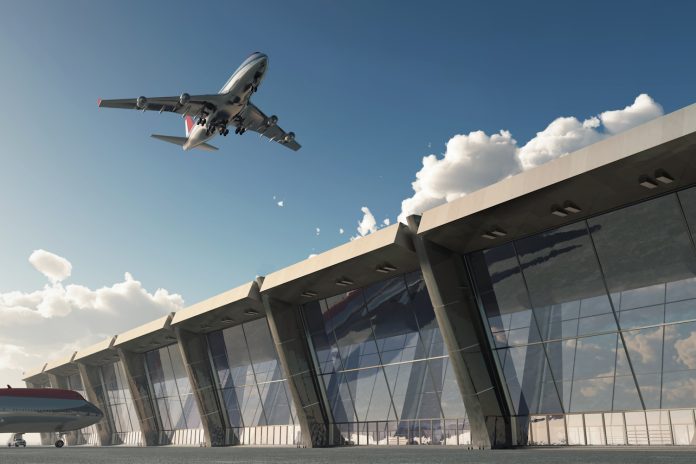Nigeria’s air transport sector generated N215.6 billion for the country’s Gross Domestic Product (GDP) in 2023, according to the latest report from the National Bureau of Statistics (NBS). But the figures also revealed a highly centralised industry, with Abuja, Lagos, and Rivers states alone accounting for over 70 percent of the sector’s total output.
The Federal Capital Territory led the rankings with N69.88 billion, representing 32.4 percent of the sector’s GDP. Lagos followed closely at N62.64 billion, or 29 percent, while Rivers contributed N22.91 billion, representing 10.6 percent. Together, the three hubs generated N150.9 billion of aviation’s GDP share, underscoring their role as Nigeria’s busiest domestic and international gateways.
Other states also made notable contributions, though on a much smaller scale. Delta recorded N10.27 billion, Kano N7.41 billion, Imo N6.74 billion, Enugu N5.72 billion, Edo N5.17 billion, Akwa Ibom N4.45 billion, and Borno N2.66 billion. Combined, the top 10 states accounted for more than 95 percent of the sector’s total output.
At the other end of the spectrum, states like Benue, Jigawa, Niger, Kebbi, and Bauchi recorded only minimal activity, while Abia, Bayelsa, Ekiti, Kogi, Nasarawa, Ogun, Osun, Taraba, Yobe, and Zamfara had no recorded aviation GDP at all, reflecting the absence of significant airport operations.
The Federal Airports Authority of Nigeria (FAAN) further highlighted the industry’s economic footprint, noting that aviation contributes about $1.7 billion to Nigeria’s GDP. In 2023, over 16 million passengers travelled through domestic airports, while more than 3.5 million passed through international terminals.
Industry observers say the concentration of aviation activities in just a handful of states is both a strength and a weakness. While Lagos, Abuja, and Port Harcourt have established themselves as strong aviation hubs, large parts of the country remain underserved, limiting the spread of aviation’s economic benefits.
The data also underscores the need to expand aviation infrastructure beyond the dominant hubs. With passenger traffic continuing to rise, experts warn that the pressure on existing facilities will only intensify unless investment is channelled into new and modernised airports across the country.
For now, Abuja, Lagos, and Rivers remain the backbone of Nigeria’s aviation sector, their combined dominance shaping both the opportunities and challenges facing the industry.













